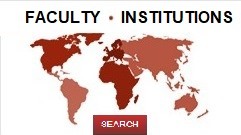Bilateral Agreements
At global level, in most cases recognition is regulated by international law through international agreements, like regional conventions and concordats; in the Catholic Church, such matters are handled by the 2nd Section of the Secretariat of State. Countries’ individual academic institutions, as well as relevant interested Bishops, are often represented by Bishops Conferences’ or the latter’s ad-hoc Commissions. The Dicastery for Culture and Education is the relevant Dicastery in these matters, similarly to Education Ministries in other countries, and was officially asked to handle international academic issues under their responsibility by the Secretariat of State, albeit always in close cooperation with the latter’s diplomatic and legal prerogatives.
Based on sound information, the legal instruments that foster a fruitful cooperation between different jurisdictions work better, i.e. individual States (and their relevant bodies in charge of academic recognition) and the Catholic Church (represented by the Holy See and/or other Church authorities/entities at local, regional, or national level). For all issues concerning both jurisdictions (State and Church) for which they must work together in the same domains, international law provides for concordats or other similar agreements.
In some recent cases, the former Congregation drafted a proposal for an administrative-cultural agreement between the relevant Ministries, in order to promote cooperation and recognition at university level. In addition to the agreement signed with the Republic of China (Taiwan) on December 2, 2011 in Taipei, we might mention similar initiatives with Poland, Serbia, Lithuania, and Latvia.





